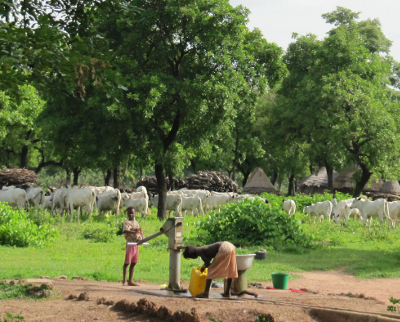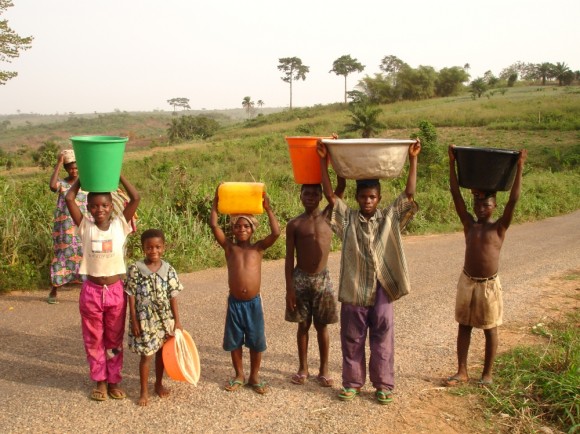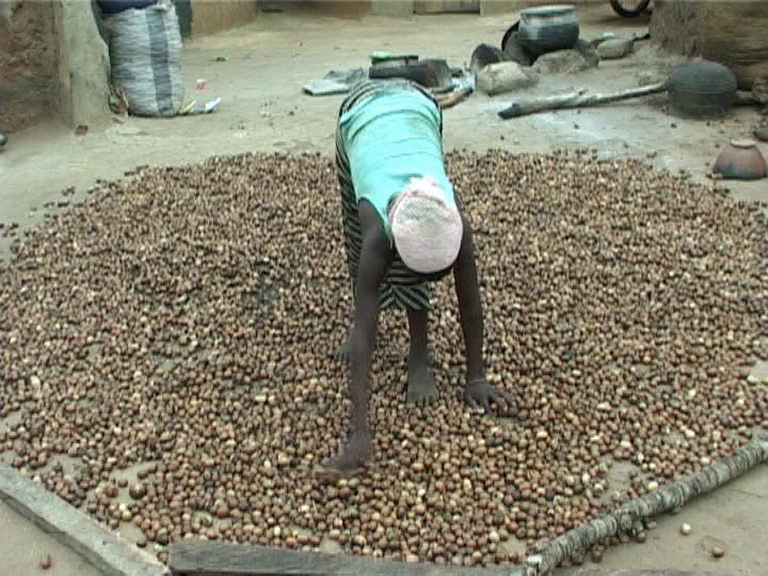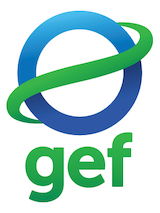Establishing the Ghana Environmental Conventions Coordination Authority (GECCA)
Project Overview
The proposed project is designed to improve coordination structures and mechanisms so that stakeholders in Ghana are addressing climate change related needs in an effective manner. The proposed project will first help the Government to merge all existing management structures at national level into one structure consisting of the Ghana Environmental Conventions Coordinating Authority (GECCA) and its Secretariat. The project will then help these mechanisms become operational by building their capacity and supporting them to perform specific tasks. Finally, the project will help these mechanisms provide support to five pilot districts, in order to build national level capacity to support districts. A series of impact indicators are provided in the logical framework. The result will be a far more coherent, streamlined and effective allocation of resources to meeting the Rio obligations. In turn, it is expected that this increased efficiency will attract additional investors to support Ghana as it meets its Rio Convention obligations.
Project Details
Ghana lies just above the Equator along the Gulf of Guinea in West Africa. It has a surface area of 239,000 km2 and a coastal shoreline of approximately 550km. Ghana has a population of approximately 20 million people and a GDP per capita of US$380. Following several years of stagnation, the economy has been growing annually by around 5% over the past five years. Agriculture accounts for 38% of the GDP and employs approximately 60% of the population, including the vast majority of the rural poor in Ghana. A total of 40 % of the population are estimated to be living in poverty, including the majority of rural people (further details are provided in Section C.2.1).
Economic activity in Ghana largely depends upon natural resources. For example, the timber, cocoa, minerals, and fish sectors contribute 48 percent of GDP, 90 percent of foreign export earnings and 70 percent of total employment. However, Ghana’s natural resources are being depleted at an alarming rate. More than 50 percent of the original forest area has been converted to agricultural land by slash and burn clearing practices. Fish, timber and non-timber forest product stocks are decreasing. Coastal towns face severe water shortages during the dry season and hydropower capacity is dropping. Despite expansion of cocoa land, productivity has declined due to rampant soil erosion. The annual cost of the degradation of Ghana’s renewable natural assets is estimated to be equal to 5.5 percent of its annual GDP, i.e. US$475 million. This degradation of the natural resource base undermines the government’s economic growth and poverty reduction strategies.
Ghana has very significant global environmental assets. In terms of biodiversity, the forest, savannah, wetland and coastal ecosystems provide a diverse range of habitats. These habitats contain at least 2975 plant species, 728 birds, 225 mammals and 221 reptiles. This species diversity is an indicator of the overall biodiversity in the country. In terms of climate change, Ghana is a net sink of climate changing gases, due largely to its forest cover and low level of industrialization. However, the net sink values are falling rapidly, notably due to land-use change. The greatest implications of climate change for Ghana are its vulnerability to change and the need for adaptation. Climate change models forecast serious implications of climate change, particularly in the water, agriculture and coastal zone sectors in Ghana. These would cause serious problems to the economy and further undermine efforts to alleviate poverty. Finally, with respect to land degradation, Ghana was quick to realise its vulnerability to desertification in the early 1980s following a series of droughts and bushfires. According to the National Action Programme, unsustainable land and water management in combination with local climate change have already led to severe land degradation over significant parts of Ghana. This is exacerbated by unsustainable levels of deforestation. Thirty five percent of the land is considered prone to desertification.
In order to address the above challenges, Ghana has ratified the three Rio Conventions and taken active steps to meet its obligations. Ghanaian stakeholders recently undertook a comprehensive, participatory assessment of the capacities needed to implement the Rio Conventions – the National Capacity Self-Assessment (NCSA). This Assessment was the first time that the stakeholders for all three Conventions had worked together. Through this process, they recognized that they have common functions and tasks, have shared resources, and face common challenges and constraints. It quickly became obvious that they should work more closely together, to pool resources and to fuse much of their work programmes.
During the Assessment, an in-depth analysis of convention obligations and in-country priorities identified the following needs that apply to all three Rio Conventions:
- The need to mainstream Convention concerns into economic and sectoral policies, programmes and practices
- The need to ensure the effective participation of stakeholders in efforts to implement the Conventions
- The need for strong knowledge management
- The need to improve two-way reporting between the country and the Convention
- The need to mobilise resources
- The need to technically and politically support stakeholders in the districts
Stakeholders in all three Conventions recognized that strengthened capacity to address these needs would lead to better management of natural resources, and in turn to better implementation of the Convention and positive impacts on the environment. Given the strong nexus between poverty and the global environment, the strengthened capacity would also contribute to poverty alleviation. Moreover, it was recognized that efforts to address these needs should be taken jointly, and not by each Convention in isolation. Accordingly, a priority recommendation of the Assessment was to strengthen coordination in order to more effectively address the above needs. It is noted that this situation applies to all Conventions, not only the Rio Conventions.
Hence the proposed project is to improve coordination structures and mechanisms, so that stakeholders in Ghana are addressing the above needs in an effective manner. The proposed project will first help the Government to merge all existing management structures at national level into one structure consisting of the Ghana Environmental Conventions Coordinating Authority (GECCA) and its Secretariat. The project will then help these mechanisms become operational by building their capacity and supporting them to perform specific tasks. Finally, the project will help these mechanisms provide support to five pilot districts, in order to build national level capacity to support districts. A series of impact indicators are provided in the logical framework. The result will be a far more coherent, streamlined and effective allocation of resources to meeting the Rio obligations. In turn, it is expected that this increased efficiency will attract additional investors to support Ghana as it meets its Rio Convention obligations
The project builds on a significant baseline consisting of national initiatives and international projects, most notably those supported by UNDP, UNEP-GEF and the Canadian Government. The project will help the Government to bring all these initiatives into one coherent structure. Sustainability will be assured through:
- The benefits generated through increased coordination will provide an incentive for Government follow-up
- Realistically, the international community can be expected to continue providing some core support to Ghana as it implements the Rio Conventions
- The long-term financial requirements for the coordination structures are low
Environmental impacts: The project will have a direct impact on the environment nationally, resulting from the capacity developed. These impacts are likely to include increased reforestation, protection of remaining forests and ecosystems, and sustainable agriculture. For example, improved coordinated knowledge management about the loss of forest cover could help identify ‘hot spots’ to be protected, based on biodiversity information, rate of soil run off, etc. However, it is unlikely that these impacts will be measurable within the timeframe of the project – they will depend on the replication of the project successes nationally, much of which will be after the GEF support has ended.
The project will, however, within its timeframe yield specific global environmental benefits in the five pilot districts. These include (i) decreased deforestation levels; (ii) biodiversity conserved, and (iii) improved land management in the agriculture sector and related impacts on erosion, soil quality and the water cycle. For example, as a result of the project activities in the districts, the District Environmental Management Commissions will have increased knowledge, increased access to resources and information, and better capacity to provide alternative livelihoods. The application of this increased capacity will lead to decreases in deforestation rates.
Key Results and Outputs
- Outcome 1: The national level structure and mechanisms for coordinating activities within and across the Rio Conventions are functioning.
- Output 1.1: The Ghana Environmental Conventions Coordinating Authority (GECCA). The project will first raise awareness and develop a draft Law for this GECCA. It will facilitate consultations amongst concerned international, national and local stakeholders. Government commitment to the GECCA will then be secured. The three existing, but ineffective, Coordinating Committees for the three Conventions will be brought into the GECCA. The Law to establish the GECCA will be appraised and approved in line with national procedures, thereby ensuring its systemization, its permanence and its budget. The Draft Act for the Climate Change Commission (not approved, see Annex 4) will serve as a basis for preparing the GECCA Law.
- Output 1.2: A Secretariat to service the GECCA and perform key tasks under the Conventions in a coordinated manner. The Secretariat will be housed in the MLGRDE and will report to the GECCA. It will be well staffed and resourced. The first year operations will be mostly financed by GEF, and henceforth it will be primarily financed by Government. It will be accessible, transparent and accountable.
- Outcome 2: National agencies responsible for the Rio Conventions are coordinating to perform the following key tasks
- Output 2.1: Key economic sectors are influenced by the GECCA and Secretariat. With the support of the project, the Secretariat will provide training and technical assistance to sectoral agencies, starting with the agriculture, water, forestry and energy sectors.
- Output 2.2: A coherent knowledge management system linking the three Conventions.
- Output 2.3: Strengthened capacity to report to and participate in Conventions. This will include a single reporting system and a single entry/exit point for reports.
- Output 2.4: Increased financial investment.
- Output 2.5: Increasing participation of stakeholders in the in-country implementation of the Conventions
- Outcome 3: Stakeholders in five diverse and representative Districts are piloting the coordination of implementation of the Conventions at the District level.
- Output 3.1: Five diverse but representative pilot districts are selected.
- Output 3.2: With the support of the Project, the Secretariat will work with district stakeholders and planners to modify the ongoing district planning process and ensure the district development plans account for the Rio concerns.
- Output 3.3: Implementation of pilot activities. These activities were tentatively identified by the local stakeholders in the NCSA process.
- Outcome 4: Monitoring, Learning, Adaptive feedback & Evaluation
Reports and Publications
ProDocs
Establishing the Ghana Environmental Conventions Coordination Authority (GECCA) - Project Document (February 2008)
Monitoring and Evaluation
Project Start:
- Project Inception Workshop: will be held within the first 2 months of project start with those with assigned roles in the project organization structure, UNDP country office and where appropriate/feasible regional technical policy and programme advisors as well as other stakeholders. The Inception Workshop is crucial to building ownership for the project results and to plan the first year annual work plan.
Daily:
- Day to day monitoring of implementation progress: will be the responsibility of the Project Manager, based on the project's Annual Work Plan and its indicators, with overall guidance from the Project Director. The Project Team will inform the UNDP-CO of any delays or difficulties faced during implementation so that the appropriate support or corrective measures can be adopted in a timely and remedial fashion.
Quarterly:
- Project Progress Reports (PPR): quarterly reports will be assembled based on the information recorded and monitored in the UNDP Enhanced Results Based Management Platform. Risk analysis will be logged and regularly updated in ATLAS.
Annually:
- Annual Project Review/Project Implementation Reports (APR/PIR): This key report is prepared to monitor progress made since project start and in particular for the previous reporting period (30 June to 1 July). The APR/PIR combines both UNDP and GEF reporting requirements.
Periodic Monitoring through Site Visits:
- UNDP CO and the UNDP RCU will conduct visits to project sites based on the agreed schedule in the project's Inception Report/Annual Work Plan to assess first hand project progress. Other members of the Project Board may also join these visits. A Field Visit Report/BTOR will be prepared by the CO and UNDP RCU and will be circulated no less than one month after the visit to the project team and Project Board members.
Mid-Term of Project Cycle:
- Mid-Term Evaluation: will determine progress being made toward the achievement of outcomes and will identify course correction if needed. It will focus on the effectiveness, efficiency and timeliness of project implementation; will highlight issues requiring decisions and actions; and will present initial lessons learned about project design, implementation and management. Findings of this review will be incorporated as recommendations for enhanced implementation during the final half of the project’s term.
End of Project:
- Final Evaluation: will take place three months prior to the final Project Board meeting and will be undertaken in accordance with UNDP and GEF guidance. The final evaluation will focus on the delivery of the project’s results as initially planned (and as corrected after the mid-term evaluation, if any such correction took place). The final evaluation will look at impact and sustainability of results, including the contribution to capacity development and the achievement of global environmental benefits/goals. The Terminal Evaluation should also provide recommendations for follow-up activities.
- Project Terminal Report: This comprehensive report will summarize the results achieved (objectives, outcomes, outputs), lessons learned, problems met and areas where results may not have been achieved. It will also lie out recommendations for any further steps that may need to be taken to ensure sustainability and replicability of the project’s results.
Learning and Knowledge Sharing:
- Results from the project will be disseminated within and beyond the project intervention zone through existing information sharing networks and forums.
- The project will identify and participate, as relevant and appropriate, in scientific, policy-based and/or any other networks, which may be of benefit to project implementation though lessons learned. The project will identify, analyze, and share lessons learned that might be beneficial in the design and implementation of similar future projects.
- Finally, there will be a two-way flow of information between this project and other projects of a similar focus.





